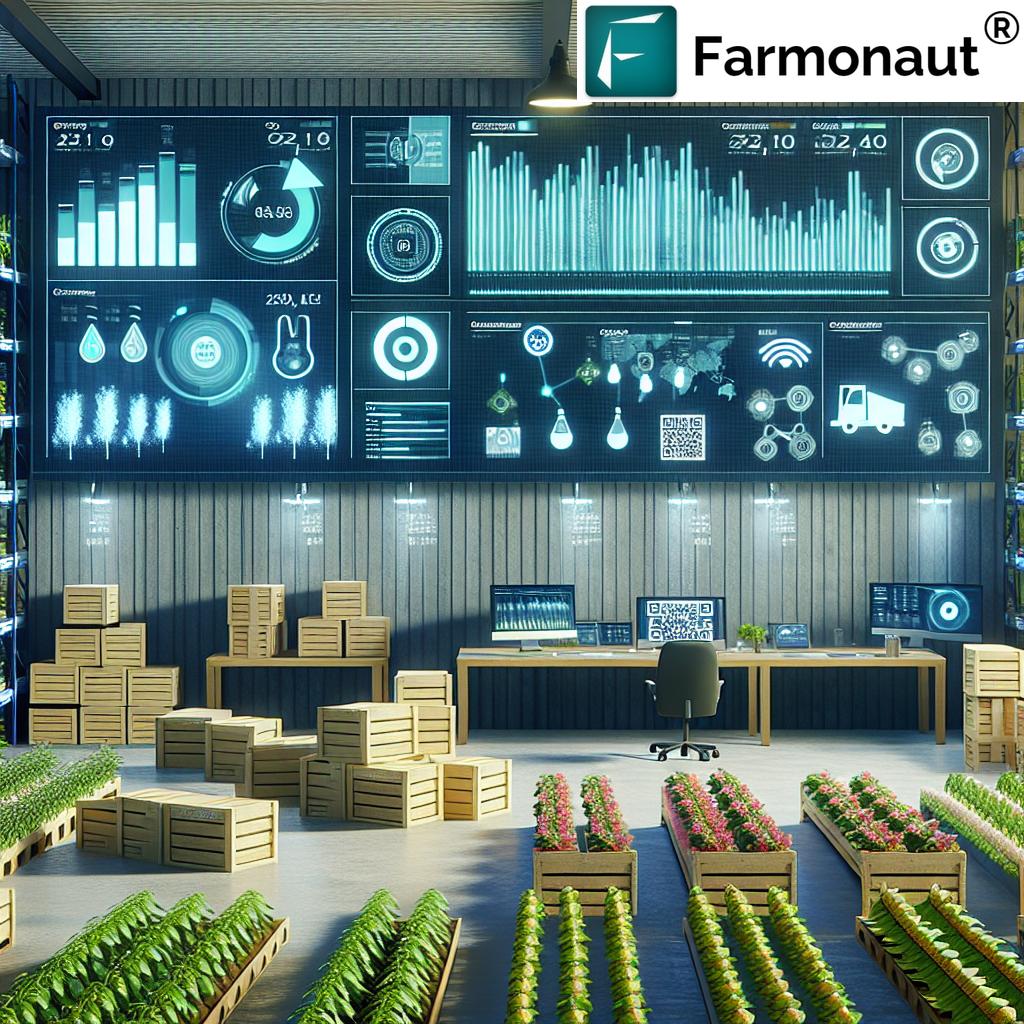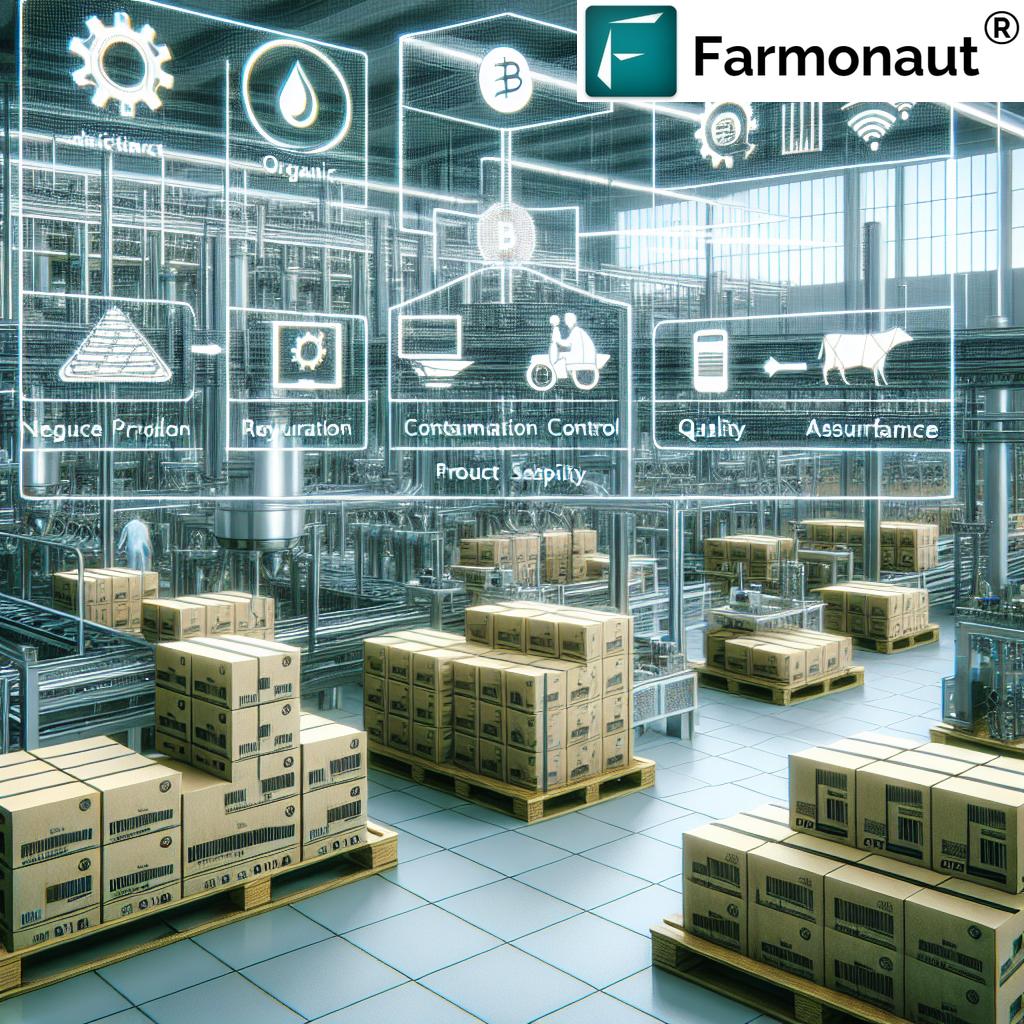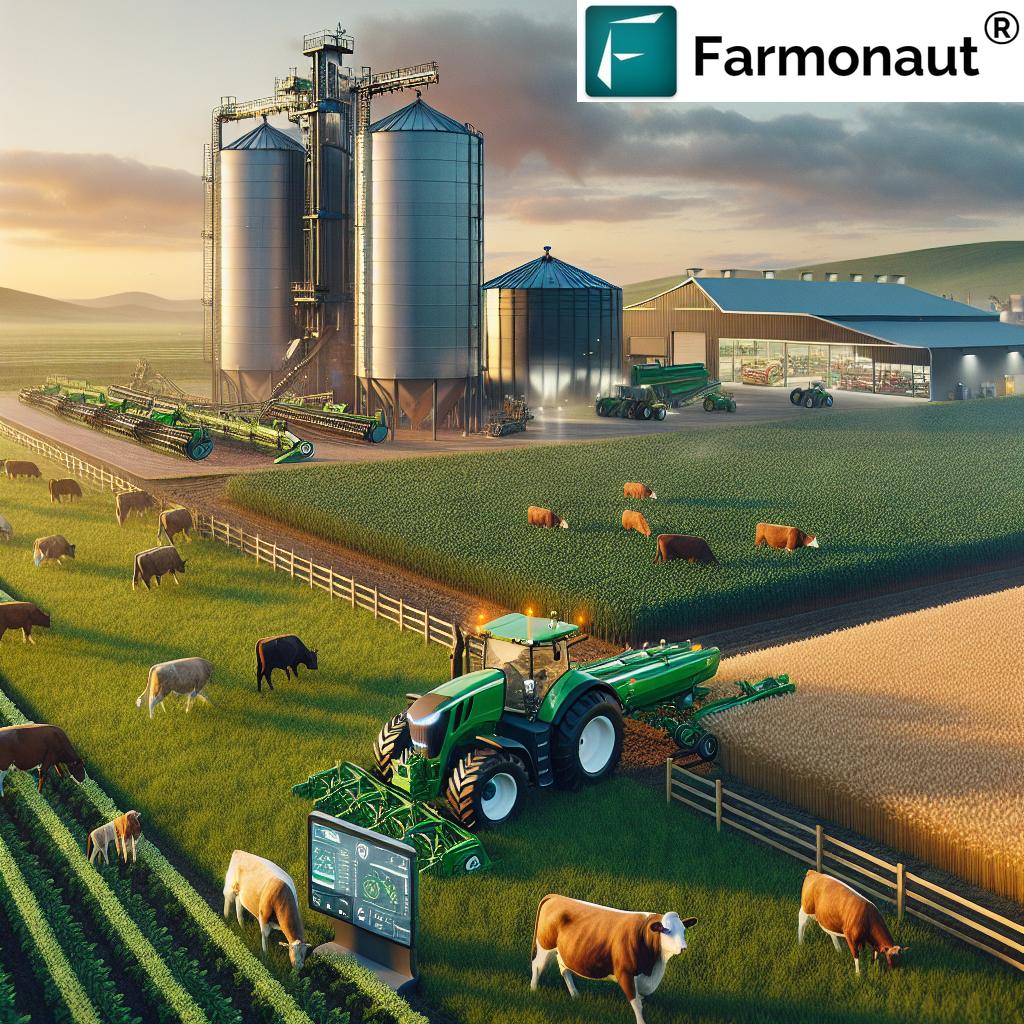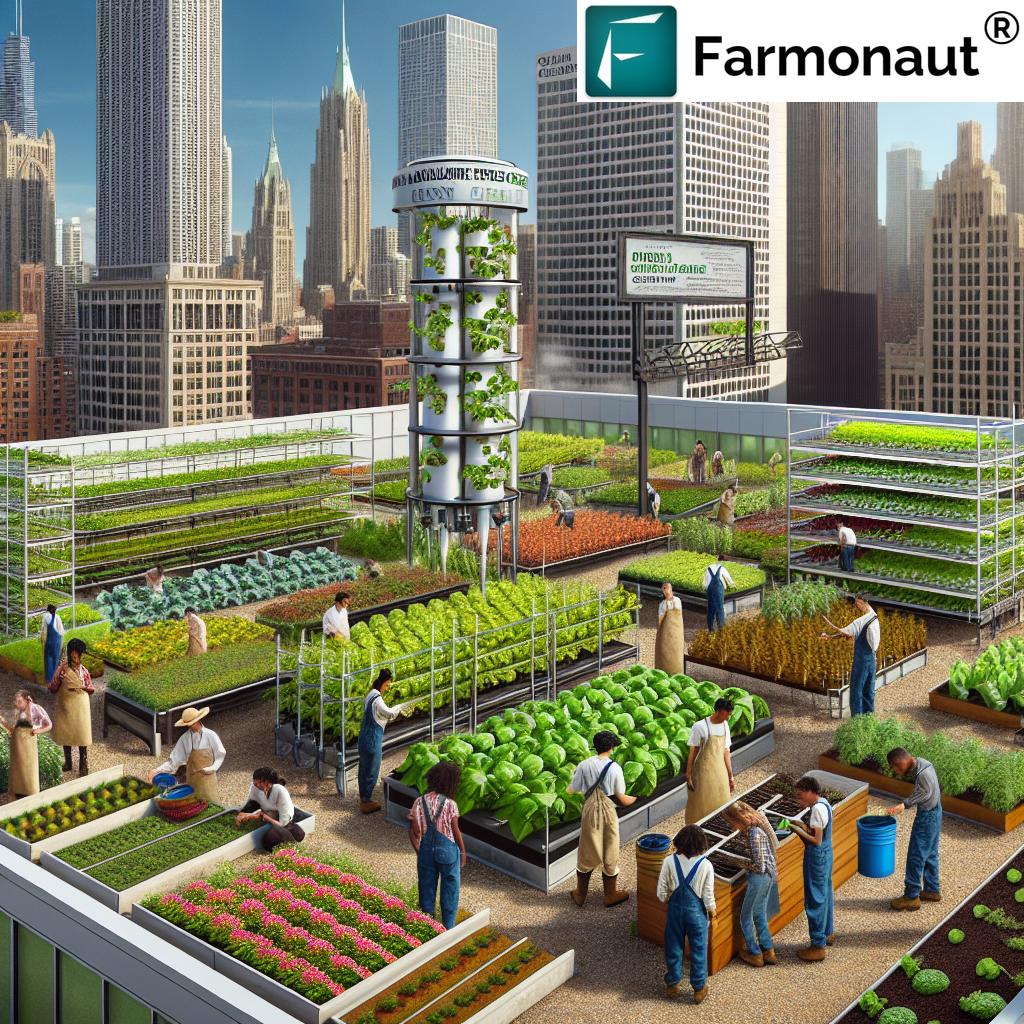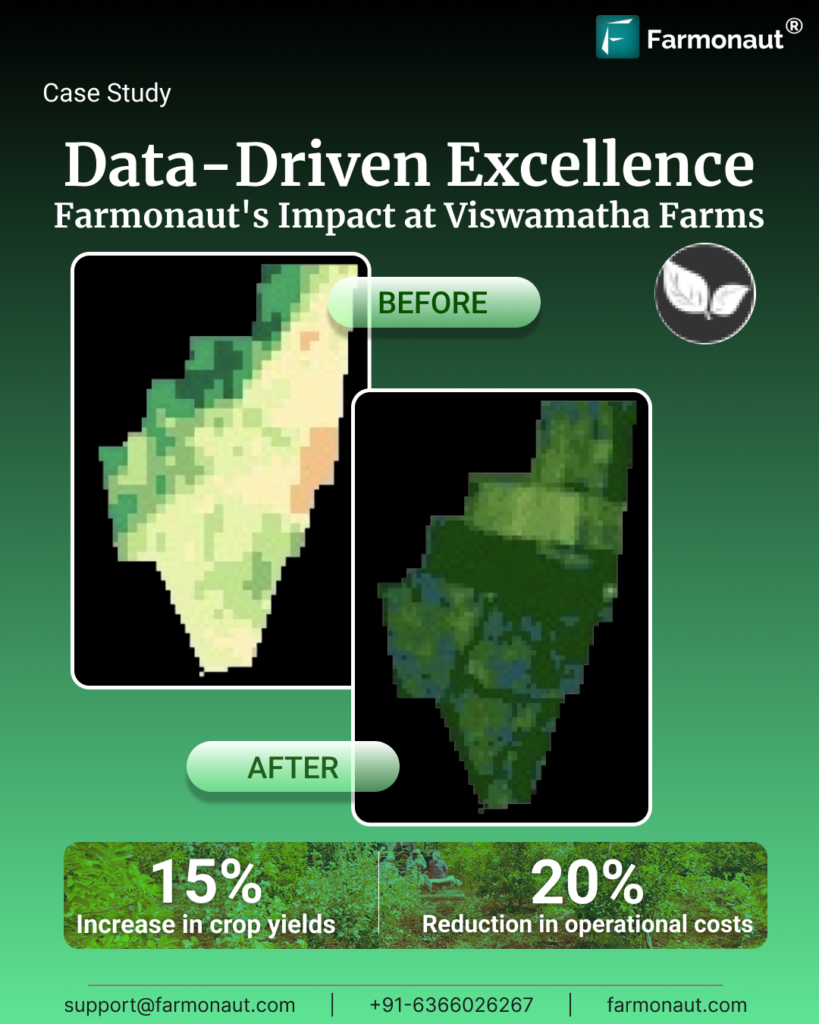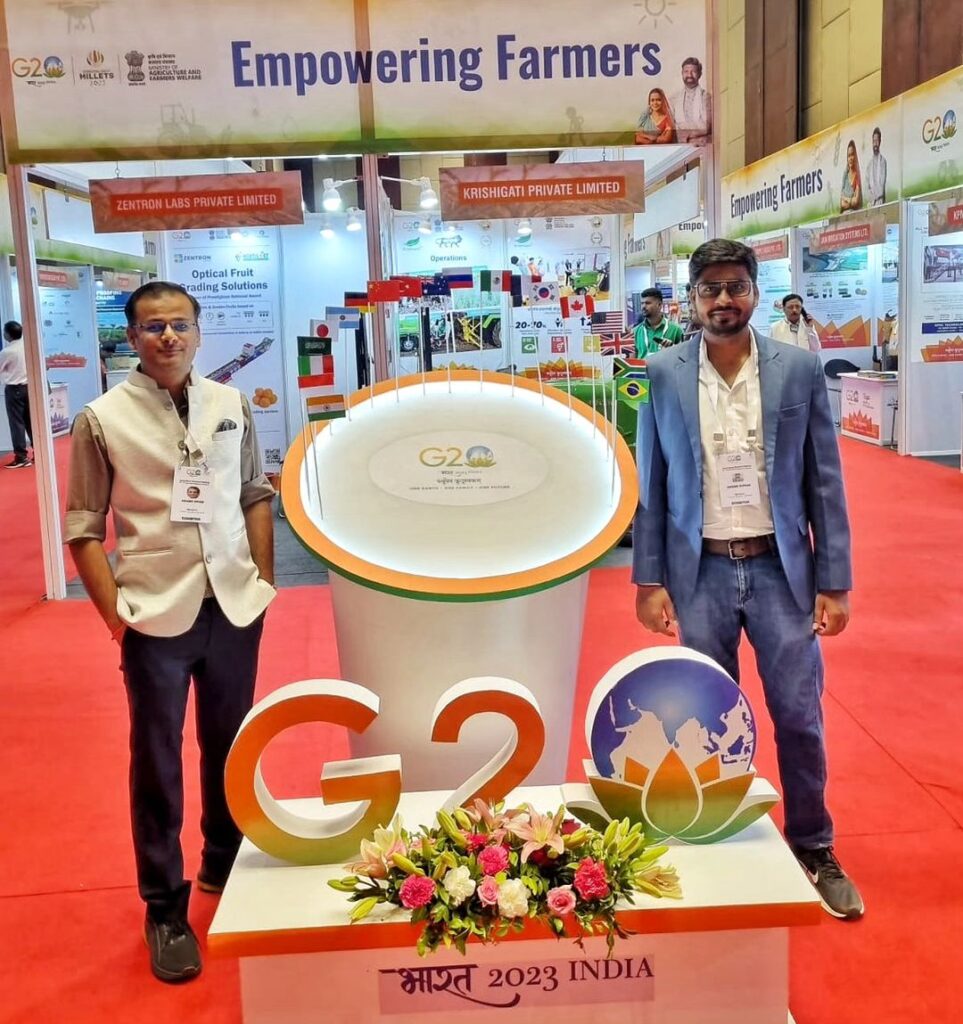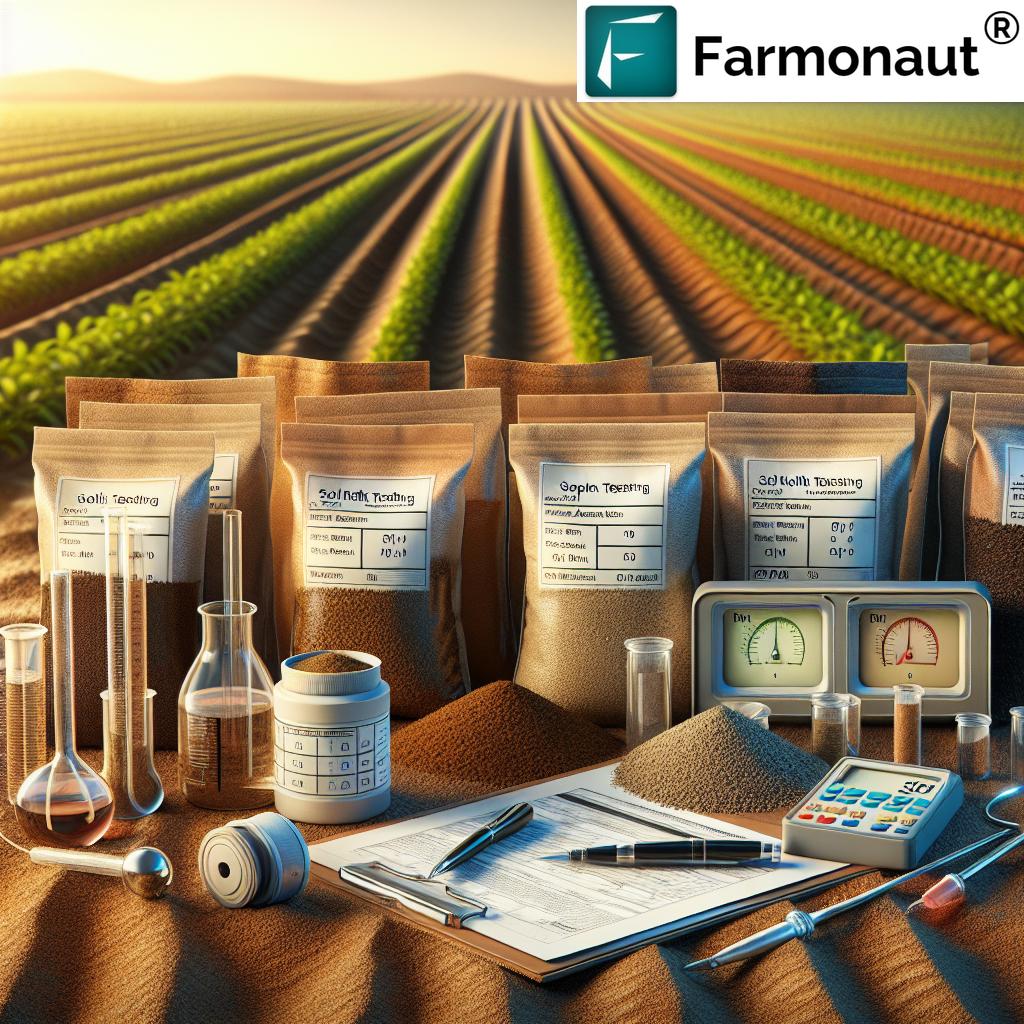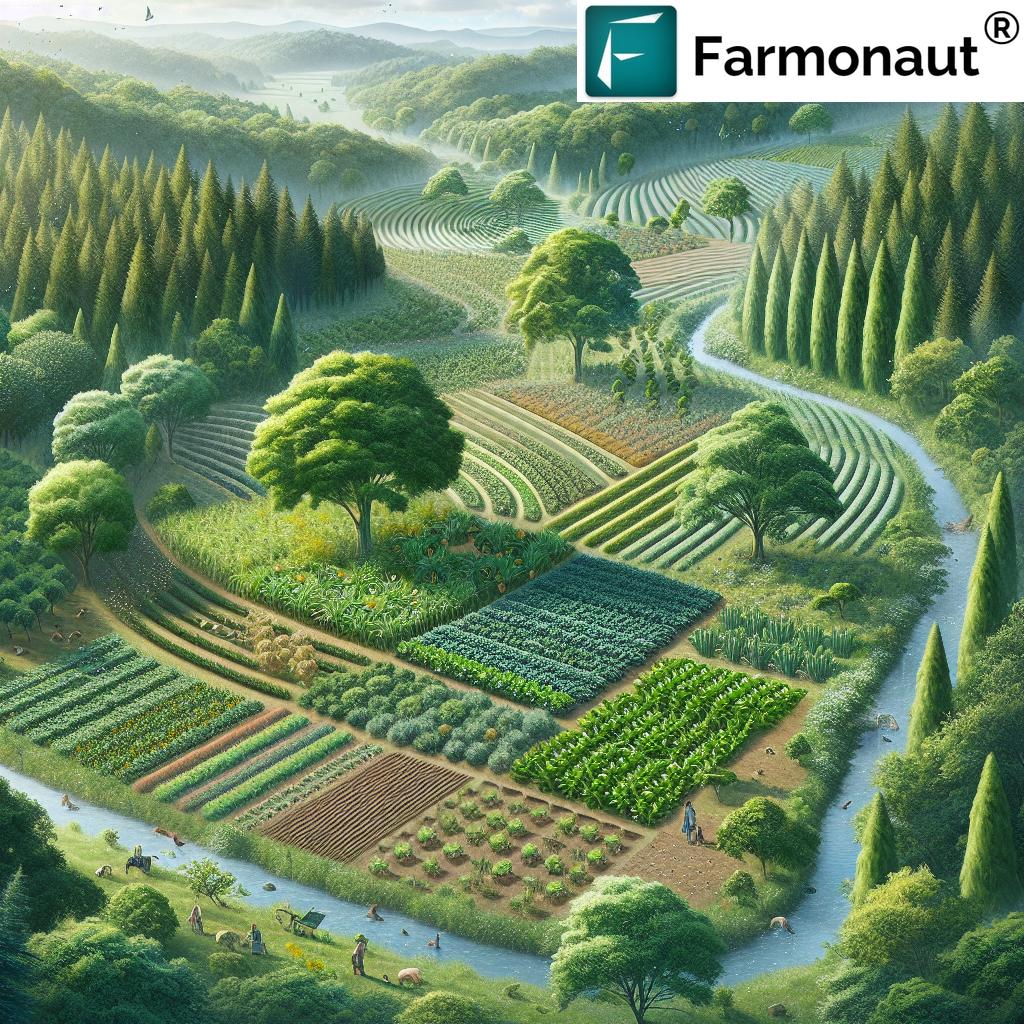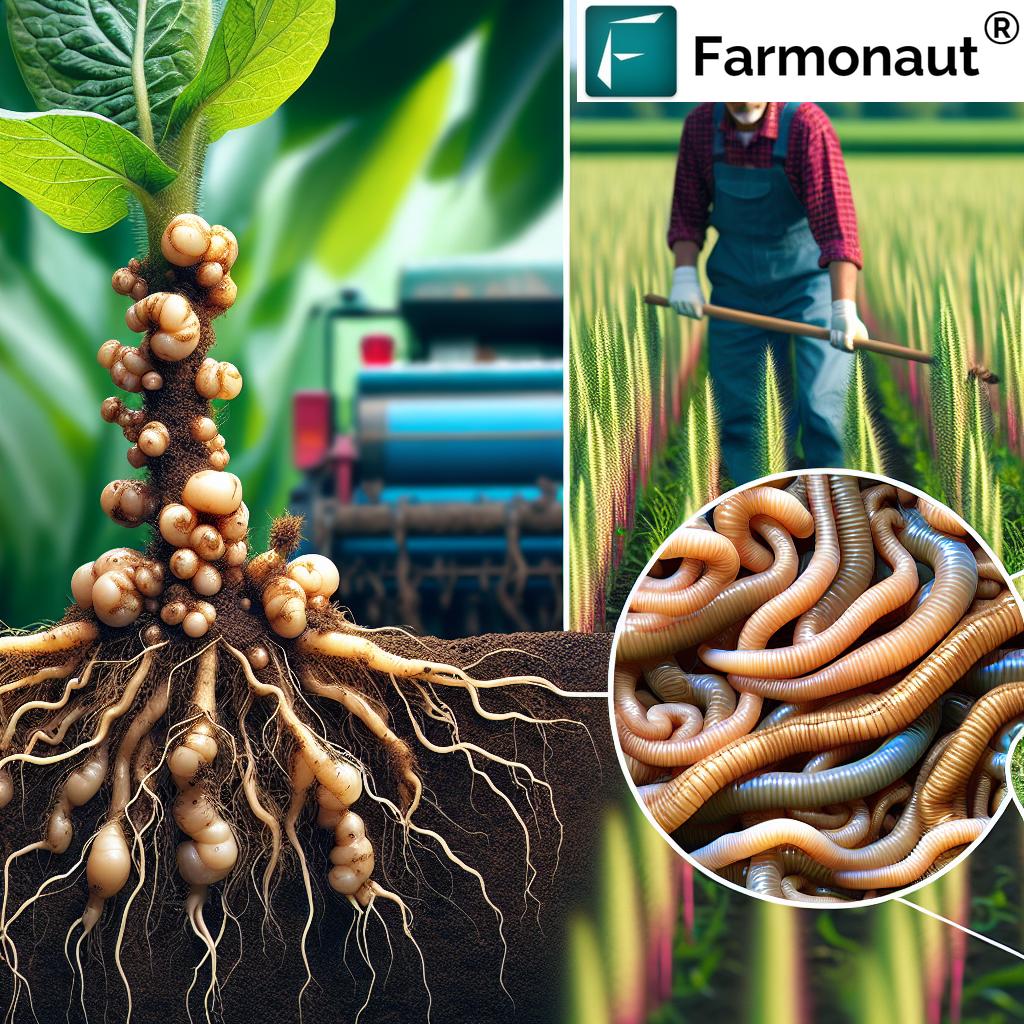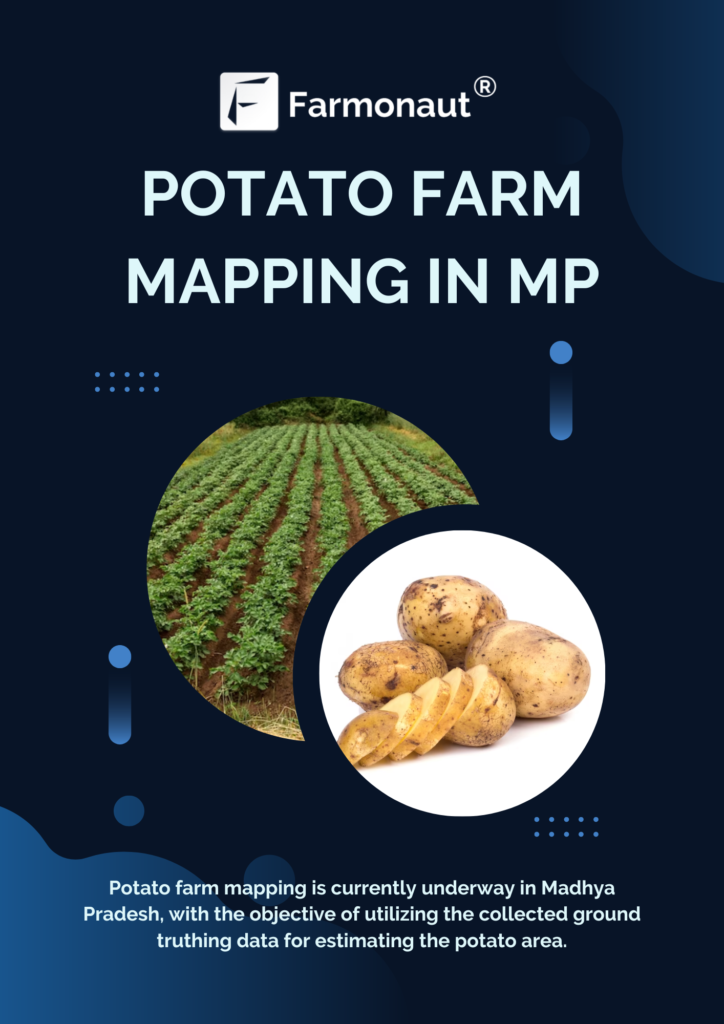Traceability Tech: 7 Powerful Ways to Boost Food Safety
Table of Contents
- Introduction to Traceability Tech
- The Importance of Traceability in Food Safety
- 7 Powerful Traceability Tech Solutions
- Farmonaut’s Advanced Role in Agricultural Traceability
- Technology Impact Comparison Table
- Challenges in Adopting Traceability Systems
- Future Trends in Traceability Tech
- FAQ: Traceability & Food Safety
- Conclusion
“Over 80% of food recalls are linked to traceability gaps—tech like blockchain can reduce this by up to 50%.”
Introduction to Traceability Tech
In today’s digital era, traceability is revolutionizing how we ensure food safety, monitor supply chains, and build consumer confidence. The ability to track products throughout their entire journey – from farm to table – has become not only a regulatory requirement but a must-have for modern transparency and sustainable farming practices.
As we face growing consumer demand for transparency, global food safety standards, and environmental regulations, implementing robust traceability systems becomes crucial. This blog dives into agricultural traceability systems, innovative food safety solutions such as blockchain, IoT, and how we can build a future of trust, quality, and accountability in agriculture, farming, and forestry.
At Farmonaut, we’re dedicated to making precision agriculture accessible and affordable through satellite-based management, AI-driven advice, and advanced traceability tech – empowering farmers and organizations worldwide to thrive in a transparent, data-driven landscape.
The Importance of Traceability in Food Safety and Agriculture
Agricultural traceability systems are the backbone of modern food safety, enabling rapid identification, targeted recalls, and greater transparency throughout the supply chain. Let’s uncover how integrated tracking and traceability benefit all actors in the system—from the smallest growers to international agribusinesses.
1. Food Safety & Rapid Contamination Response
- Enable fast identification and removal of contaminated products across distribution stages
- Reduce public health risks from foodborne illness outbreaks
- Allow authorities to trace sources of contamination and implement recalls efficiently
2. Consumer Confidence & Transparent Choices
- Support farm to table transparency and give consumers detailed information about product origins, handling, and processing methods
- Empower informed purchase choices and foster lasting trust in brands
3. Regulatory Compliance & Market Access
- Facilitate compliance with local and international food safety regulations
- Enable certification and continued market participation as regulatory standards evolve
Explore Farmonaut’s Blockchain-Based Traceability Solution to see how transparent supply chains can unlock consumer trust and global trade.
4. Quality Assurance & Consistency
- Track each step – from planting, harvesting, storage, to distribution – for robust quality control
- Reduce variability, boost product quality, and enhance process reproducibility
5. Sustainability & Environmental Stewardship
- Enable monitoring of inputs, farming methods, and production records
- Detect inefficiencies, improve resource management, and promote sustainable farming practices
- Support compliance with carbon management; learn more about our Carbon Footprinting Solution
6. Economic Benefits & Brand Value
- Reduce costs associated with foodborne outbreaks by enabling faster, more targeted recalls
- Open new business opportunities in high-value and export markets with robust traceability
“By 2025, global agricultural blockchain spending is projected to surpass $400 million, revolutionizing food safety and transparency.”
7 Powerful Traceability Tech Solutions Driving Food Safety
Let’s explore the leading traceability technologies transforming food safety, transparency, and sustainable farming practices in agriculture, farming, and forestry worldwide.
1. Blockchain in Agriculture
- Immutable, Transparent Records: Every stage of a food product’s journey – from planting to plate – is securely logged on a shared, tamper-proof blockchain ledger.
- Enhances trust: Enables all stakeholders to trust the accuracy and integrity of product information, reducing fraud and improving accountability.
- Streamlines recalls: When an issue occurs, authorities can instantly trace and identify affected batches for targeted action, minimizing risk and loss.
- Enables smart contracts: Automate compliance and payment processes throughout the supply chain.
- Farmonaut’s Advantage: Our blockchain-powered traceability solutions for farmers ensure end-to-end transparency for agrifood and textile supply chains.
2. IoT Sensors and Connected Devices
- Real-Time Monitoring: IoT devices (sensors, smart scales, RFID tags in agriculture) collect environmental data (temperature, humidity) and track product movement in real time.
- Automated alerts: Triggers warning notifications for dangerous conditions—like unsafe temperature fluctuations in storage or transit—guarding against spoilage or contamination.
- Comprehensive tracking: Provides detailed environmental and process logs to authorities and consumers.
- Farmonaut IoT Integration: Accessible via Farmonaut’s app interface, empowering farmers with farm-to-cloud remote crop, storage, and supply chain insights.
3. RFID Tags and QR Codes for Food Traceability
- RFID Tags in Agriculture: Radio Frequency Identification (RFID) tags store unique data for each product unit or batch, allowing automated scanning and tracking throughout the supply chain.
- QR Codes for Farm to Table Transparency: Easily scannable by consumers with their smartphones, QR codes reveal detailed traceability data – origin, handling practices, certifications, and more.
- Accelerates recall processes: If issues arise, targeted product recalls become possible with speed and accuracy.
- Enhances consumer trust and engagement: Producers can stand out by providing full transparency at the point of sale.
- Discover how you can implement product traceability using Farmonaut tech on our traceability solutions page.
4. Satellite Imaging and Remote Sensing
- Field-to-fork mapping: Satellite analytics (NDVI, crop health, soil moisture) validate production records and monitor compliance with good agricultural practices.
- Objective, third-party-informed data: Supports product certification, dispute resolution, and audit processes.
- Farmonaut’s Core: Our satellite-based health monitoring integrates real-time growing condition alerts, empowering farmers to make informed decisions on water, inputs, and harvests.
- Satellite APIs for Integration: Use our robust APIs to embed satellite traceability into your own agri-systems.
5. Advanced AI & Machine Learning for Food Safety
- Pattern Detection: AI analyzes sensor, satellite, and supply chain logs to uncover patterns and forecast risks including potential contamination or supply disruption.
- Process Optimization: Suggests preventive actions and triggers early alerts for deviations from safe production practices.
- Farmonaut’s Jeevn AI: Our personalized AI suite delivers field-specific advice, weather forecasts, and crop protection recommendations—automating quality and safety optimization.
- See AI in action: Get smart advisory on your farm
6. Mobile Applications for Real-Time Traceability
- Easy Data Collection: Mobile apps enable farmers and handlers to quickly input crop, harvest, and logistics data using photos, forms, or GPS.
- Effortless access for all: Distributors, buyers, and consumers can instantly verify batch details, certifications, or safety compliance—anytime, anywhere.
- Farmonaut App: Download our Android or iOS app to try seamless crop monitoring, food traceability, and digital recordkeeping on your farm.
7. Fleet and Resource Management Systems
- Track Movements in Real Time: Monitor and control vehicle/cargo movement, keeping a precise log of each transit and storage condition for every product batch.
- Reduce risks and costs: Prevent losses and delays by instantly identifying and responding to logistics issues.
- Farmonaut Fleet Management: Optimize agricultural logistics and equipment usage with our Fleet Management Solution for farm-to-market efficiency.
These technologies work together to enhance traceability in the supply chain, supporting fast, accurate tracking, data-driven decision-making, and true farm-to-table transparency for all.
Farmonaut’s Advanced Role in Agricultural Traceability
As a global leader in agricultural technology, Farmonaut offers a comprehensive digital platform designed to make traceability, transparency, and sustainable farming practices accessible for all. Our mission is clear: empower farmers, agribusinesses, and governments to ensure safe, traceable, and sustainable food production, regardless of scale or location.
What Sets Farmonaut Apart?
- Satellite-Based Crop Health Monitoring: Multispectral imagery reveals real-time insights into crop health, soil moisture, and more, supporting every decision across the growing season.
- Blockchain-Based Product Traceability: End-to-end supply chain transparency—secure, tamper-proof, and instantly accessible via web and mobile.
- AI-driven Farm Advisory (Jeevn AI): Personalized, data-informed recommendations to boost yield, reduce risk, and minimize environmental impact.
- Fleet and Resource Management: Optimize vehicles, machinery, and logistics – ensuring products are fresh, safe, and traceable on arrival.
- Carbon Footprinting: Track input use, emissions, and environmental impact—meet the growing demand for sustainably-sourced food products.
Accessible Globally, Scalable for All: Farmonaut solutions are available via Android, iOS, and web platforms—and through API for integration into your own software. Whether you manage a small organic farm or oversee transnational agribusiness, our platform adapts to your needs and scale.
Try our mobile apps or API platform to get started!
Technology Impact Comparison Table: Traceability Solutions for Food Safety
| Traceability Technology | Core Features | Estimated Implementation Cost (USD) | Food Safety Benefit Score (1-10) | Adoption Rate in Agriculture (%) | Real-World Example |
|---|---|---|---|---|---|
| Blockchain | Immutable records, multi-party access, instant trace & recall, anti-fraud | $10k-$250k+ | 10 | 12% | Farm-to-market traceability in agri-food supply chains |
| IoT Sensors | Real-time environmental & storage monitoring, data auto-logging | $500/device, scalable | 8 | 24% | Cold-chain tracking of fresh produce during distribution |
| QR Codes | Consumer access to product data, instant batch traceability, marketing | $180/10,000 units | 7 | 31% | Fresh produce, packaged goods with farm-to-table QR trace |
| RFID | Automated contactless scanning, real-time batch tracking | $1-$5/tag | 8 | 16% | Meat/dairy logistics tracking, contamination recall control |
| Satellite Imaging | Remote crop & field status monitoring, yield & compliance mapping | $0.5-$4.5/ha/season (via Farmonaut) | 9 | 8% | Farmonaut crop health insights for sustainable traceability |
| Mobile & Web Apps | Instant data entry, real-time logs, on-the-go verification | $2-$8/user/month | 7 | 40% | Farmonaut’s easy-to-use app suite for field data tracking |
| AI & Machine Learning | Predict patterns, anomaly detection, automation of compliance | $1k-$75k+ | 9 | 12% | Farmonaut Jeevn AI advisory for crop risk management |
Challenges in Implementing Traceability in Agriculture
As transformative as traceability solutions are, many producers and agribusinesses face hurdles when adopting new tech-driven systems. Let’s understand these challenges for better planning and inclusive adoption.
- High Initial Investment: Digital systems, sensors, and blockchain infrastructure can present a cost barrier—especially for smallholder farmers.
- Complex Integration: Replacing legacy systems and ensuring seamless workflows require time, money, and specialized training.
- Lack of Standardization: No universal standards exist yet for traceability data formats or processes, making collaboration and scaling harder.
- Data Privacy Concerns: Ensuring secure information sharing is a must—many farmers fear misuse of their sensitive farm or supply chain data.
- Tech Access Barriers: Limited connectivity in rural regions slows adoption of digital traceability and mobile applications.
- Resistance to Change: Tradition and uncertainty about new technologies can slow the pace of adoption, especially among established growers.
Farmonaut’s modular, cloud-based solutions address these by offering cost-effective subscriptions, flexible scaling, and mobile-first access, reducing both technical and financial hurdles.
“By 2025, global agricultural blockchain spending is projected to surpass $400 million, revolutionizing food safety and transparency.”
The Future of Food Safety: Trends in Traceability Technology
With rising consumer demand for transparency and intensifying regulatory scrutiny, agricultural traceability systems will become the industry standard. Here’s what’s on the horizon:
- Expanding Blockchain Adoption: Not just for traceability, but as the backbone for integrated quality, compliance, and commercial transactions.
- Next-Gen IoT Networks: Low-cost, wireless sensors will make live tracking and monitoring possible even in remote fields, warehouses, and cold-chains.
- Smart Labels: Ubiquitous use of QR codes and RFID tags in agriculture for everything from organic produce verification to allergen alerts.
- AI-Driven Automation: Automated compliance checks, instant fraud detection, and smarter recall triggers via real-time data analysis.
- Global Data Standards: Initiatives to harmonize traceability standards world-wide, enabling cross-border food safety and trade.
Frequently Asked Questions: Traceability & Food Safety
Q1: What is food traceability, and why is it important?
Food traceability means having systems in place to track the journey of a food product from its origin (farm or processor) to the final consumer. It’s crucial for enabling targeted recalls, identifying sources of contamination, ensuring transparency in supply chains, and building trust with consumers.
Q2: How does blockchain improve food traceability?
Blockchain stores every stage of food production and logistics on a secure, immutable ledger accessible by all stakeholders. It prevents data tampering and streamlines rapid trace-back during recalls, thereby boosting food safety and quality assurance.
Q3: What role do RFID and QR codes play in food safety?
RFID and QR codes allow for easy, automated scanning and batch-level tracking at every point in the supply chain. This supports rapid product tracing, consumer information transparency, and more efficient recall processes.
Q4: Are traceability systems affordable for small farmers?
Yes, with cloud-based and subscription models like Farmonaut’s, smallholders can access satellite imagery, farm records, and traceability solutions at a fraction of traditional hardware costs.
Q5: How can consumers verify the origin of their food?
Consumers can simply scan QR codes or access verified trace data for products processed by traceability-enabled producers. Farmonaut’s blockchain-based traceability solutions make such transparency possible.
Q6: What is the difference between “traceability” and simple supply chain management?
Supply chain management optimizes logistics and inventory, while traceability explicitly enables detailed data capture and backward/forward tracking of each product’s journey—essential for safety and compliance.
Q7: Where can I learn more about Farmonaut’s traceability solutions?
Visit our Product Traceability page or download our app for more details.
Conclusion: Building Trust and Safety Through Traceability Tech
As we turn towards digital, data-driven agriculture, traceability in the supply chain is our most powerful tool for ensuring food safety, enhancing transparency, and meeting growing consumer demand for transparency. From blockchain-secured records and IoT-linked sensors to satellite insights, technology for traceability minimizes foodborne risks, streamlines recalls, and supports sustainable, high-quality production.
Even as challenges exist in cost, integration, and standardization, the benefits for farmers, producers, and society are immense: safer food, informed consumers, reduced environmental impact, and thriving, competitive markets.
With Farmonaut, agricultural traceability systems become not just possible, but practical and affordable. Join us in enabling farm-to-table transparency, sustainable farming, and a safer, stronger future for food worldwide.
Explore Farmonaut Traceability Solutions for Farmers & Agri-businesses


